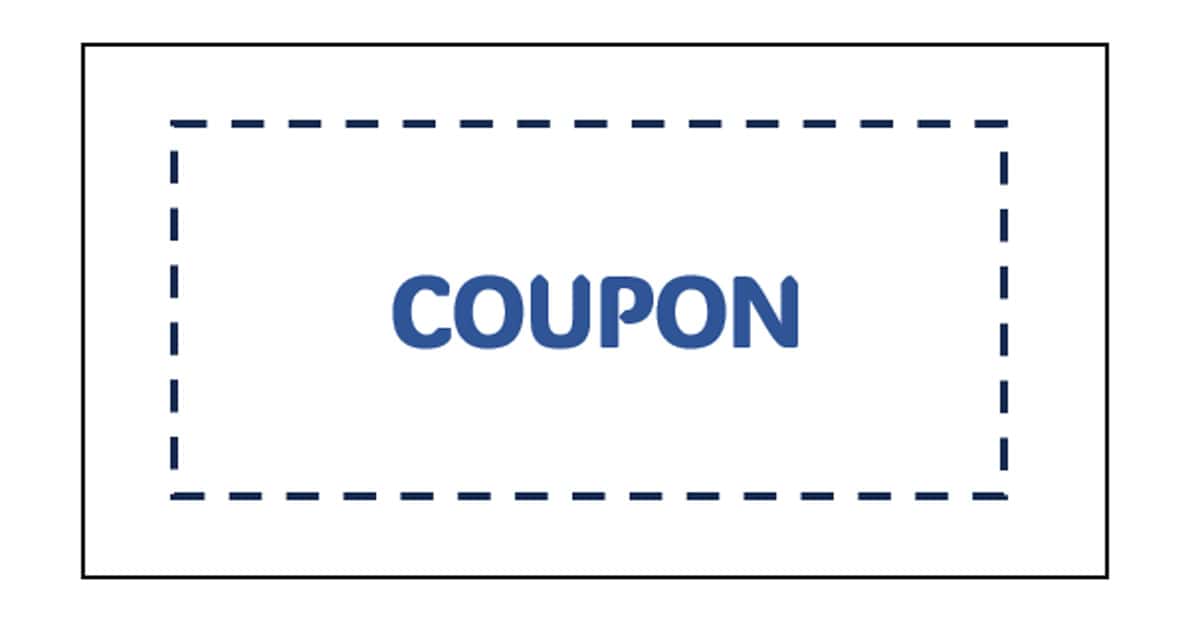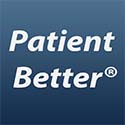The Necessity of Patient Education for Navigation Efficiency in Modern Healthcare: A Comprehensive Guide to Empowerment

Patients and caregivers also ask
Patient education is the process of providing patients and caregivers with the knowledge, skills, and confidence needed to manage their health and navigate the healthcare system effectively. It encompasses a wide range of topics, including understanding medical conditions, treatment options, preventive care, and the administrative aspects of healthcare such as scheduling, billing, and insurance.
Patient education is important because it empowers individuals to take an active role in their healthcare. By being well-informed, patients can make better decisions about their health, adhere to treatment plans more effectively, and communicate more clearly with healthcare providers. This leads to improved health outcomes, greater satisfaction with healthcare experiences, and a higher quality of life. Additionally, educated patients are better equipped to navigate the often complex healthcare system, ensuring they receive the necessary care and support without undue stress.
Participating in a patient education program offers numerous benefits for both patients and caregivers:
Improved Health Literacy: These programs enhance your understanding of medical terms, conditions, and treatment options, enabling you to make informed decisions about your health.
Effective Disease Management: By learning how to manage chronic conditions, you can better adhere to treatment plans, monitor symptoms, and prevent complications, leading to improved health outcomes.
Enhanced Communication: Patient education improves your ability to communicate effectively with healthcare providers, ensuring that you can accurately describe symptoms, ask pertinent questions, and understand medical advice.
Empowerment and Confidence: Gaining knowledge about your health empowers you to take control of your healthcare journey, increasing your confidence in managing your health and making decisions.
Efficient Navigation of the Healthcare System: These programs provide valuable tools and strategies for navigating the healthcare system, including scheduling appointments, understanding insurance, and accessing resources, reducing stress and confusion.
Cost Management: Understanding your health and the healthcare system can help you avoid unnecessary tests and procedures, better manage medical expenses, and maximize your insurance benefits.
Support and Resources: Patient education programs often provide access to a network of support and resources, including educational materials, support groups, and online tools, which can enhance your healthcare experience.
Preventive Care: Education on preventive measures can help you maintain your health and prevent the onset of new conditions, contributing to long-term well-being.
Overall, participating in a patient education program equips you with the essential knowledge and skills to manage your health proactively, navigate the complexities of the healthcare system, and achieve better health outcomes.
A comprehensive patient education program encompasses several key components designed to equip patients and caregivers with the knowledge and skills necessary to effectively manage their health and navigate the healthcare system. These components include:
Health Literacy Education:
- Focuses on improving the ability to understand and use health information.
- Covers basic medical terminology, understanding diagnoses, and interpreting health information.
Preventive Care:
- Educates patients on the importance of preventive measures such as regular screenings, vaccinations, and healthy lifestyle choices.
- Includes information on diet, exercise, and avoiding risk factors for diseases.
Administrative Skills:
- Helps patients and caregivers understand and manage administrative aspects of healthcare, such as scheduling appointments, billing, and health insurance.
- Provides guidance on navigating the healthcare system, including finding providers and understanding healthcare rights and responsibilities.
Communication Skills:
- Focuses on effective communication with healthcare providers.
- Teaches patients how to articulate symptoms, ask relevant questions, and understand medical advice.
Self-Advocacy:
- Empowers patients to take an active role in their healthcare.
- Provides strategies for advocating for oneself or a loved one in medical settings to ensure that their needs and preferences are addressed.
Use of Technology and Tools:
- Introduces patients to digital tools and resources that can aid in managing their health, such as mobile apps, online portals, and telemedicine.
- Provides training on how to use these tools effectively to track health metrics, access health information, and communicate with providers.
Support Resources:
- Connects patients with additional resources such as support groups, counseling services, and community health programs.
- Provides access to educational materials, both online and offline, to support ongoing learning.
- Streamlines education using the concept of meaningful learning, which focuses on teaching patients a foundation of everything they need to know surrounding the condition management education they receive in the exam room or point-of-care services.
- Ensures that patients understand the context and relevance of their healthcare information, leading to better retention and application of knowledge.
By including these key components, a comprehensive patient education program can effectively support patients and caregivers in managing their health, improving health outcomes, and navigating the healthcare system with confidence.
Having comprehensive patient education enhances effective health management by providing patients and caregivers with crucial knowledge and skills. This education improves health literacy, enabling individuals to understand medical information, make informed decisions, and adhere to treatment plans. It fosters better communication with healthcare providers, leading to more accurate diagnoses and personalized care.
Moreover, patient education empowers individuals, promoting self-advocacy and proactive health behaviors. It simplifies navigation of the healthcare system, making administrative tasks like scheduling and billing more manageable. By emphasizing preventive care and the use of technology, patient education helps in maintaining overall well-being and managing health conditions more effectively.
Patient Better’s educational program stands out from other patient education resources in several key ways:
Holistic Approach: Patient Better combines both medical and administrative education, addressing not only chronic condition management but also the logistical aspects of healthcare, such as scheduling, billing, and insurance navigation. This comprehensive approach ensures that patients are well-prepared to handle all facets of their healthcare journey.
Meaningful Learning: Unlike traditional patient education programs that often focus solely on clinical information, Patient Better employs the concept of meaningful learning. This method provides a foundational understanding of healthcare concepts, empowering patients to contextualize and apply the information they receive during medical appointments.
Practical Tools and Templates: Patient Better offers a wide array of practical tools and templates designed to simplify healthcare management. These resources help patients track medical appointments, manage medications, and understand insurance benefits, making the day-to-day management of health conditions more manageable.
Certification Program: Patient Better’s certification program offers a structured learning path that not only enhances patients’ knowledge but also provides a certification recognizing their expertise in healthcare navigation and management. This added credential can boost confidence and reinforce the importance of their role in managing health.
Focus on Navigation Efficiency: The program emphasizes navigation efficiency, providing patients with the skills to effectively maneuver through the complex healthcare system. This includes training on how to access healthcare services, coordinate care among multiple providers, and utilize healthcare resources efficiently.
Patient and Caregiver Empowerment: Patient Better’s mission is to empower both patients and caregivers. By equipping them with the necessary knowledge and tools, the program fosters a sense of control and confidence in managing health and healthcare logistics.
Supportive Community and Resources: Patient Better connects individuals with a network of support, including access to educational materials, online portals, and community resources. This ongoing support ensures that patients and caregivers have the help they need to manage their health effectively.
By integrating these unique elements, Patient Better’s educational program provides a comprehensive, practical, and empowering approach to patient education, setting it apart from other resources.
Now, an Introduction to Patient Education
Navigating the complex landscape of modern healthcare can be daunting for patients and caregivers alike. This article delves into the necessity of patient education for enhancing navigation efficiency, providing a comprehensive guide to empowerment and efficiency. By understanding and utilizing patient education, individuals can better manage their health, communicate effectively with healthcare providers, and navigate the healthcare system with confidence.
Consider Jane, a 65-year-old woman recently diagnosed with diabetes. Initially overwhelmed by the medical jargon and numerous appointments, Jane found herself struggling to manage her condition. However, after enrolling in a patient education program, she learned how to monitor her blood sugar, understand her medication regimen, and communicate effectively with her healthcare team. This newfound knowledge empowered Jane to take control of her health and navigate the healthcare system more efficiently, improving her overall health outcomes and satisfaction.
In this article, we will explore what patient education entails, its critical importance in the current healthcare environment, and how Patient Better has emerged as a pivotal solution in this domain. Through understanding patient education, we aim to equip you with the tools and knowledge necessary to navigate the healthcare system effectively and achieve better health outcomes.
Understanding Patient Education
Definition and Scope of Patient Education: Patient education refers to the process of providing patients with the knowledge, skills, and confidence necessary to manage their health and healthcare. It encompasses a wide range of topics, including understanding medical conditions, navigating the healthcare system, and making informed decisions about treatment options. The goal of patient education is to empower individuals to take an active role in their healthcare, leading to improved health outcomes and enhanced quality of life.
Distinction Between Patient Education for Chronic Condition Management and Administrative Management: While patient education broadly aims to equip individuals with essential health knowledge, it can be categorized into two distinct types: education for chronic condition management and administrative management.
- Chronic Condition Management:
- Focus: This type of patient education is centered on helping patients understand and manage long-term health conditions such as diabetes, hypertension, and asthma.
- Content: Includes information on disease processes, medication management, lifestyle changes, symptom monitoring, and preventive care.
- Objective: To enable patients to manage their conditions effectively, prevent complications, and maintain a good quality of life.
- Administrative Management:
- Focus: This aspect of patient education deals with the administrative tasks associated with navigating the healthcare system.
- Content: Covers topics like scheduling appointments, understanding health insurance, billing and coding, patient rights, and effective communication with healthcare providers.
- Objective: To help patients and caregivers efficiently manage the logistics of healthcare, ensuring they can access the necessary services and support without undue stress.
For more detailed information on the differences between chronic condition management and administrative management in patient education, you can refer to the article "Administrative Education: Your Essential Partner in Healthcare Navigation – What You Need to Know" on the Patient Better website.
By understanding these two facets of patient education, individuals can be better prepared to handle both the medical and logistical aspects of their healthcare journey, leading to a more holistic and effective approach to health management.
The Necessity of Patient Education for Navigation Efficiency
Why Patient Education is Now Essential in Modern Healthcare: In today’s complex healthcare environment, patient education has become indispensable for achieving navigation efficiency. As healthcare systems grow more intricate and patients are expected to take a more active role in managing their health, understanding how to navigate these systems effectively is crucial. Patient education equips individuals with the knowledge and skills needed to handle various aspects of their healthcare, ultimately leading to better health outcomes and higher satisfaction.
Modern healthcare systems are multifaceted, involving various providers, facilities, and services. Without proper education, understanding how to access different healthcare services, coordinate care among multiple providers, and utilize healthcare resources efficiently can be overwhelming. Patient education helps individuals navigate these systems more effectively.
With the shift towards patient-centered care, individuals are now expected to take more responsibility for managing their health. This includes understanding their conditions, following treatment plans, and making informed decisions about their care. Education empowers patients to take control of their health, improving adherence to treatments and enabling proactive health management.
Effective communication between patients and healthcare providers is essential for accurate diagnosis, appropriate treatment, and overall care coordination. Patient education teaches individuals how to communicate their symptoms, ask pertinent questions, and understand medical advice, fostering better collaboration and understanding between patients and providers.
Navigating health insurance and managing healthcare costs can be challenging. Patients need to understand their coverage, benefits, and the financial aspects of their care. Education provides patients with the knowledge to make informed financial decisions, avoid unnecessary costs, and maximize their insurance benefits.
By addressing these factors through comprehensive patient education, individuals can navigate the healthcare system more efficiently, leading to improved health outcomes, reduced stress, and a more empowered approach to managing their health.
Benefits of Patient Education for Navigation Efficiency
Patient education offers numerous benefits that significantly enhance navigation efficiency within healthcare systems. By providing individuals with the necessary knowledge and skills, patient education fosters improved health literacy and empowerment, which are critical for managing one’s health effectively. When patients understand their conditions, treatment options, and the healthcare system, they are better equipped to make informed decisions, leading to improved health outcomes.
One of the primary advantages of patient education is the enhanced ability to navigate healthcare systems. Patients who are well-informed can efficiently access various healthcare services, coordinate care among multiple providers, and utilize available resources effectively. This comprehensive understanding reduces the confusion and stress often associated with complex healthcare systems.
Better communication with healthcare providers is another significant benefit of patient education. Educated patients are more likely to articulate their symptoms accurately, ask relevant questions, and comprehend medical advice. This improved communication leads to more accurate diagnoses, appropriate treatments, and effective care coordination, fostering a collaborative relationship between patients and providers.
Efficient use of healthcare resources is another outcome of effective patient education. When patients are knowledgeable about their health and the healthcare system, they can avoid unnecessary tests and procedures, adhere to treatment plans, and make informed choices about their care. This not only optimizes the use of healthcare resources but also helps in managing healthcare costs.
Increased patient satisfaction and better health outcomes are the ultimate benefits of patient education. When patients feel empowered and capable of managing their health, they are more likely to engage in proactive health behaviors, adhere to treatments, and experience improved health. This satisfaction stems from a sense of control and understanding, contributing to a higher quality of life.
By focusing on these benefits, patient education serves as a vital tool for enhancing navigation efficiency, ultimately leading to a more effective and satisfying healthcare experience for patients and caregivers alike.
Key Components of Effective Patient Education for Navigation Efficiency
Effective patient education for navigation efficiency incorporates several key components that equip individuals with the necessary skills and knowledge to manage their health and navigate the healthcare system. These components ensure that patients are well-informed and capable of making decisions that enhance their health outcomes and overall satisfaction with their healthcare experience.
- Health Literacy Programs: Health literacy programs are foundational to patient education. These programs focus on enhancing an individual’s ability to understand and use health information. By improving health literacy, patients can better comprehend medical terms, instructions, and their own health conditions, which is crucial for effective self-management and decision-making.
- Tools and Resources for Healthcare Navigation: Access to tools and resources specifically designed for healthcare navigation is essential. These might include online portals, mobile apps, and educational materials that guide patients through the process of finding providers, scheduling appointments, understanding treatment options, and accessing support services. Such resources simplify the complexities of the healthcare system and make it more accessible to patients.
- Training on Administrative Tasks: Training on administrative tasks, such as scheduling, billing, and understanding health insurance plans, is a critical component of patient education. Patients often encounter administrative hurdles that can hinder their access to care. By educating patients on how to handle these tasks, they can more efficiently manage their appointments, understand their medical bills, and navigate their insurance coverage, leading to less stress and better healthcare experiences.
- Strategies for Effective Communication and Self-Advocacy: Effective communication and self-advocacy are vital for ensuring that patients receive the care they need. Patient education should include strategies for communicating clearly with healthcare providers, expressing concerns, asking questions, and advocating for oneself in medical settings. This empowers patients to take an active role in their healthcare, ensuring that their needs and preferences are heard and addressed.
By incorporating these key components, patient education programs can significantly enhance navigation efficiency, empowering patients to manage their health more effectively and navigate the complexities of the healthcare system with greater ease and confidence.
How Patient Better Addresses the Need for Patient Education
Introduction to Patient Better and Its Mission: Patient Better is dedicated to transforming the healthcare experience through comprehensive patient education. Our mission is to empower patients and caregivers by providing them with the knowledge and tools needed to navigate the healthcare system efficiently, manage their health proactively, and achieve better health outcomes.
Description of Patient Better’s Educational Programs and Tools: Patient Better offers a wide range of educational programs and tools designed to meet the diverse needs of patients and caregivers. These include:
- Online Courses: Patient Better offers a variety of online courses designed to enhance health literacy and empower patients and caregivers. These courses cover essential topics such as understanding medical conditions, navigating the healthcare system, and effective communication with healthcare providers.
- Health Management Program: Our Health Management Program provides comprehensive resources and support for managing health conditions. This program includes free shipping of educational materials, tools, and resources directly to your home, ensuring you have everything you need to manage your health effectively.
- Certification Program: Patient Better’s Certification Program offers a structured learning path that equips patients and caregivers with advanced skills in healthcare navigation and management. Completing this program not only enhances your knowledge but also provides a certification that recognizes your expertise in managing healthcare needs.
- Templates and Tools: We provide a wide array of templates and tools designed to simplify healthcare management. These include templates for tracking medical appointments, managing medications, and understanding insurance benefits. Our tools are user-friendly and designed to help patients and caregivers stay organized and informed.
Through comprehensive education and practical tools, Patient Better is committed to making healthcare more accessible and manageable for all. By addressing the critical need for patient education, we help individuals navigate the complexities of the healthcare system with confidence and achieve better health outcomes.
Conclusion
Recap of the Importance of Patient Education for Navigation Efficiency: Patient education is crucial for enhancing navigation efficiency within healthcare systems. It empowers patients and caregivers with the knowledge and skills needed to manage their health effectively, communicate with healthcare providers, and navigate the complexities of modern healthcare.
Patient education is crucial for enhancing navigation efficiency within healthcare systems. It empowers patients and caregivers with the knowledge and skills needed to manage their health effectively, communicate with healthcare providers, and navigate the complexities of modern healthcare.
To all patients and caregivers, we urge you to prioritize your education in managing healthcare. By actively seeking out and utilizing educational resources, you can take control of your health journey.
We encourage you to explore the resources offered by Patient Better. Our educational programs and tools are designed to improve healthcare navigation, empower you, and ultimately lead to better health outcomes. Together, we can create a more efficient, effective, and patient-centered healthcare system.
Call to Action for Healthcare Providers, Policymakers, and Patients to Prioritize Patient Education: It is imperative for healthcare providers, policymakers, and patients to prioritize patient education as well. Providers should integrate comprehensive education programs, like Patient Better into their practice, policymakers should support these efforts through conducive policies and funding, and patients should actively seek out and utilize educational resources.
Encouragement to Explore and Utilize Patient Better’s Resources for Improved Healthcare Navigation: We encourage everyone to explore and utilize the resources offered by Patient Better. Our educational programs and tools are designed to improve healthcare navigation, empower patients and caregivers, and ultimately lead to better health outcomes.
End of article.
Did you find this article useful and want to take the next step in becoming your own health advocate?
Stay in touch with us by connecting, liking, subscribing, reposting, or sharing with us on social media.
Disclaimer
The information provided here is for educational and entertainment purposes only. It is not intended as, nor should it be considered a substitute for professional medical advice, diagnosis, or treatment. Always seek the advice of your physician or other qualified health provider with any questions you may have regarding a medical condition. If you think you may have a medical emergency, immediately call 911 or your local emergency number.
Recommended Reads
If you found this article insightful, enhance your health advocacy journey with these carefully selected reads, chosen to deepen your understanding and empower your healthcare decisions.
Is learning a health advocacy program right for you?
Patient Better is a groundbreaking, all-in-one solution that empowers individuals to become recognized health advocates. With our comprehensive Health Advocacy Program, we provide aspiring advocates with the knowledge, skills, and resources needed to navigate the complexities of the healthcare system effectively. This unique program covers a wide range of topics, from understanding medical concepts, processes, and financial intricacies, to learning effective communication skills, patient advocacy techniques, and the importance of holistic wellness. Participants will emerge with a comprehensive skill set that enables them to navigate the healthcare landscape with confidence and positively impact their lives.
By enrolling in the Patient Better Health Advocacy Program, participants gain access to expert-led training sessions, interactive workshops, and real-world case studies. The curriculum is thoughtfully designed to equip advocates with practical tools to support patients and their families during challenging medical situations. As advocates, they learn to bridge the communication gap between healthcare providers and patients, ensuring that medical decisions are well-informed and aligned with the patient’s best interests.
Consider purchasing the Patient Better Health Advocacy Program if:
You or your family are facing challenges in communicating, coordinating, or collaborating on your healthcare efficiently and effectively.
You or your family have received a medical diagnosis and seek to minimize errors, oversights, and uninformed decisions.
You or your family are looking for a cost-effective solution to navigate and understand your health journey.
With the Patient Better Health Advocacy Program, you’ll gain the support and expertise needed to navigate the complexities of the healthcare system, empowering you to make informed decisions and improve your overall healthcare experience.
Coupon Code: Use HealthAdvocate10 for 10% off your purchase of the Patient Better Start-up Program and start your journey towards a more empowered and easier health journey.

For Search Engines
This article explores the necessity of patient education for navigating the healthcare system efficiently. It highlights the benefits of understanding healthcare navigation, including improved health outcomes, better communication with providers, and effective management of healthcare resources. The article also details how Patient Better’s educational programs and tools can empower patients and caregivers, making healthcare more accessible and manageable.


